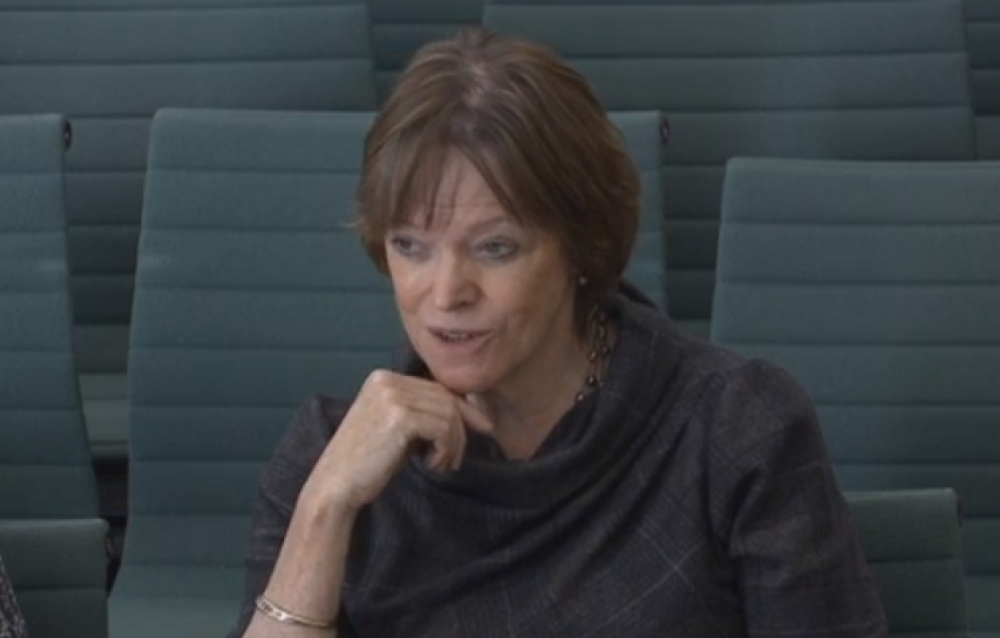Ofqual boss Glenys Stacey has warned awarding organisations (AOs) that the qualifications watchdog is clamping down on “rogue” non-compliance — and is currently looking at 40 cases where action could be taken.
In a speech at the Ofqual 2015 conference in Birmingham today, the chief regulator told an audience including representatives from 155 of the 160 AOs it regulates that it was now “better geared up to identify non-compliance”.
Ms Stacey said: “It is fair to say we have tightened up our regulatory approach over the past year – we have renovated our own house so it is in good order. We are now a more targeted regulator that has made big investments in its standards, compliance and legal teams.”
She added: “We are better geared up to identify non-compliance and better prepared to take firm, proportionate action. Our regulations set minimum standards that are applicable to all… if we find evidence of non-compliance we will take action where it would be proportionate for us to do so.
“We want you to be confident to invest in your products, in research and development, by knowing that we will take action against your competitors where we find problems.
“And we are taking action where we need to. Where we have looked so far this year we have found problems in a number of areas. We are currently following up 40 cases of non-compliance stemming from our annual Statement of Compliance process — and let me be clear, we have identified, are concerned about, and are following up, awarding organisations which have claimed compliance but where we have evidence that such a claim is wrong.”
Seminars with Ofqual standards, compliance and legal teams also took place on audit, risk and enforcement issues as officials pushed their ‘get tough’ message.
The conference also included panel discussions, with members including Ofqual chair Amanda Spielman; Nigel Whitehead CBE, group managing director of programmes and support, BAE Systems and Commissioner at the UK Commission for Employment and Skills; and, John Widdowson CBE, Association of Colleges president and New College Durham principal.
Also on the panels were Professor David Green, vice chancellor and chief executive, University of Worcester; Dr Fiona Aldridge, assistant director for development and research, National Institute of Adult Continuing Education; and, Nick Linford, director, Lsect and former editor of FE Week. They heard Ms Stacey outline how poor centre controls among AOs were proving a key concern.
“Internal assessment is of course a valid assessment approach, particularly where qualifications need to assess practical skills,” said Ms Stacey.
“However, in a number of audits, where we have looked for evidence of compliance with our requirements for effective centre controls, we have found non-compliance, again and again, in different AOs.
“And we are and we will continue to refer those non-compliances to our enforcement team. It is critical that those who rely on qualifications can have confidence in the way assessment is delivered — that they can rely on the outcomes of assessment no matter where or when it takes place.”
She also spoke about the results of Ofqual’s Spring Audits report, out this month. The report said: “In most cases, the evidence we collected indicated that the AOs had in place approaches that could secure compliance with our requirements.”
But Ms Stacey told delegates that Ofqual’s work on standards went further than the AOs it already regulated.
“We are not just looking at what is inside the regulated market, of course — we also control entry to it and manage exit from it,” she said.
“And some awarding organisations have surrendered recognition — for others we have withdrawn it. There are 23 fewer awarding organisations recognised today than there were four years ago.
“We are quite comfortable with this. We are not here to defend you, to do your job or to whitewash over any cracks that we find. Our responsibility is to those who rely on your qualifications.”
She added: “While we typically receive around 50 applications for recognition each year, only two or three typically make the grade.
“We are unapologetic about protecting the regulated market and maintaining high standards. None of you wishes to be tarnished or suffer from the actions of a few ‘rogue builders’.”
The issue of little or no use of qualifications was also raised by Ms Stacey as she told delegates: “If your qualifications are as valid as they can be, if they are well-designed around the skills and knowledge they need to assess, you will best-placed to meet … new opportunities.
“Central to that has been our removal of the QCF rules at the end of September this year. The evidence is that in some cases these rules were proving a hindrance to meeting users’ needs.”
She added: “Review your portfolio of qualifications and clear away those products which are either not demanded any more or do not function. Depreciation is a fact of life. Qualifications fall out of use just as buildings or technology depreciate.”








Does Ofqual have sufficient confidence in its judgements about awarding bodies and compliance to publish them? I am not particulary impressed with statements like ’40 cases of non-compliance’ if it keeps them all under wraps.
Well said Mike Farmer